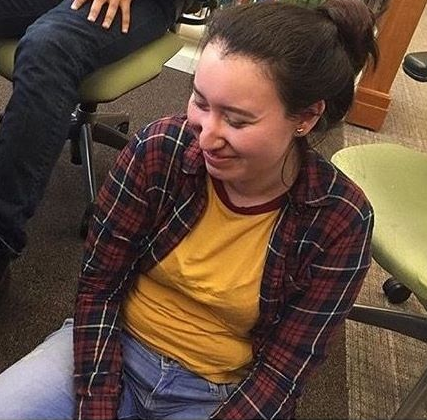
The manner in which the United States media projects to viewers is vastly different from the rest of the world. The American people have been exposed to opposing biases that are displayed through enumerable forms of media every day. News source differ across the country, exacerbated by underlying political bias inherent to the bipartisan nature of America. The 2016 election, the most discussed election in modern American history, had a continuous dialogue open between the news media and the public.
Heated partisan rhetoric has headlined news coverage on the election. International students who are experiencing their first American election pick this type of discourse up much easier.
“I think the media in Guatemala is different because CNN is democrat and Fox is republican, meaning that they base their news on what they support,” says freshman undecided major Maria Aguilar de Paz from Guatemala, who has been in America for three years. “But in Guatemala the news are a little bit less biased than in the US,”
De Paz reads news from both Guatemala and America weekly, having a preference for CNN and El Periodico, a Guatemalan news source.
In America, the portrayal of politics in news outlets has dominated conversations. Individual Americans have been citing various media outlets during political debates, both on and offline. This differs from the perspectives of media outlets and individuals outside of America and the ability to access it.
“In America, media is discussed actively, whereas back in Kazakhstan it is not,” says freshman finance major Regina Hwang from Kazakhstan. “It feels differently, but probably because of the elections”.
She has said that she feels a hint of culture shock as a result of the media’s accessibility to the public in America, which greatly differs from Kazakhstan.
Hwang also mentioned that public reaction to media in Kazakhstan differs greatly from American reaction. There is a presence in America that actively encourages the involvement of news and media that she did not feel in Kazakhstan.
The polarizing media in America can be seen as a positive and negative influence on the public. This has been an aspect heavily discussed by the international community at Suffolk.
“The way people reflect on media is much higher than a participating perspective,” said freshman psychology major Jose Windevoxchel from Puerto Rico. “In this case, they make the election look like a game and it’s kind of bad because many get distracted from the main point which is that we’re electing our next leader,”
He has been intently following the election because of implications that it will have in the country he is studying in, as well as his home in Puerto Rico
“It determines the fate of my country too.” he said.
The international community at Suffolk has picked up on the reliance that the U.S. has on the news outlets. In an expansive country with pockets of urban communities sparsely placed in vast swaths of rural and suburban communities, major media sources are a lifeline to those who are not within reach of a prominent local news source.
“The media has the power to influence people because that’s how we get our information” said freshman Aashi Sethi from Nepal. She has been in America for two months. She said she has witnessed social media also playing an active role in influencing individuals, especially during election season.
The constant need for entertainment is another difference that international students believe influence media output. This has turned politics into theatre on a grand stage.
“The media is openly biased so an individual will want to consume what they want to hear so they’ll hear what they want to.” said junior double major in management and business Jose Antonio Peña from Peru. “Their own channels will show their interests. I feel like it’s a reality show with publicity and the news channels have to be attractive and entertaining with a focus on scandals and drama.”
He stated that he believes that the media caters to what an audience wants.
The press and their outlets all have a particular course of action that varies from country to country. The media differences between America and the rest of the world has shaped the way international students perceive their current home.






